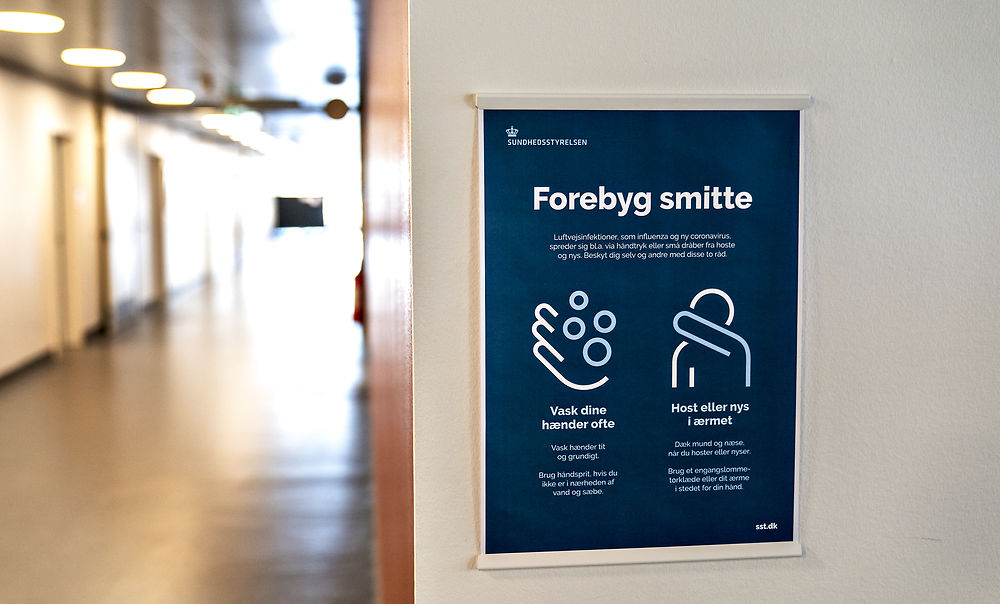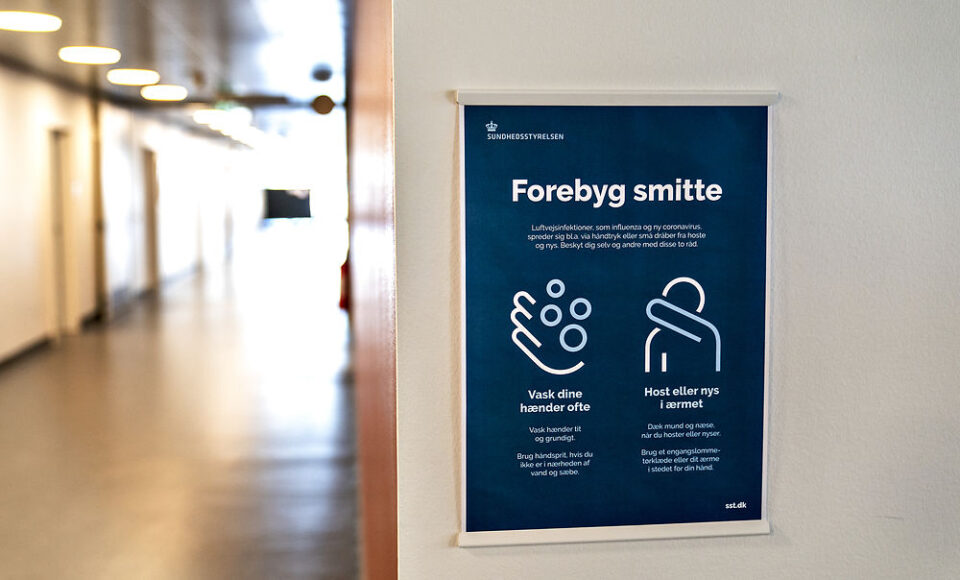
We have chosen to make this article completely free for everyone. Please support our coverage by considering joining as a member. Scroll to the bottom for more information.
What’s the latest news on coronavirus in Denmark?
Denmark on Monday placed 122 people in quarantine at their homes in response to the country’s four confirmed cases of coronavirus infection.
Four people have so far tested positive for coronavirus in Denmark. Of these, one is an employee at Aarhus University Hospital.
The first case reported in the country was a man from Zealand who recently returned from a holiday in northern Italy. Copenhagen’s Rigshospitalet confirmed a positive test for the virus on Friday. In that case, the individual returned from a ski holiday in northern Italy on February 15th and became ill with a cough three days after returning. They contacted their own doctor on February 27th. The fourth confirmed case, reported on Sunday, is connected to this person.
Of the 122 quarantined people, 108 have been quarantined due to a connection to the 4 confirmed cases.
The remaining 14 have connections to an infected person who is currently in Denmark, Danish Patient Safety Authority (Styrelsen for Patientsikkerhed) head of department Anette Lykke Petri said at a Monday press briefing in comments reported by Ritzau.
Petri noted that the latest figures were subject to change on an ongoing basis.
The quarantined individuals are all considered to be healthy unless there are indications to the contrary, Ritzau writes.
Meanwhile, the four Danes confirmed to be infected with the coronavirus were described by Petri as being well under the circumstances and as having shown “extraordinarily great responsibility”.
What are the latest steps from Danish authorities?
The Danish Health Authority (Sundhedsstyrelsen, DHA) said on Monday it is maintaining its strategy of “containment” regarding coronavirus.
That means the authority is working to trace people who have been in contact with confirmed infected persons in order to reduce and slow the spread of the virus.
At the time of writing, DHA considers the risk of a wider outbreak in Denmark to remain low. That is because the country’s healthcare system is “is well equipped and trained to manage patients with suspected or confirmed infectious diseases,” the authority writes on its website.
Health authorities in Denmark are not currently recommending quarantine to people who have returned from travel or staying in areas with infection but have no signs of illness.
But people returning from a trip to outbreak areas are advised to be aware of signs of respiratory illness and to contact health authorities should signs of illness occur. Read more on this below.
Quarantine is used if, after thorough assessment of the individual, it is considered that there is a high risk that they may have been exposed to infection.
What is coronavirus?
It’s a respiratory illness which belongs to the same family as the common cold.
The outbreak in the Chinese city of Wuhan began at a fish market in late December.
According to the World Health Organisation, more than 80 percent of patients infected with the virus have mild symptoms and recover, while 14 percent develop severe diseases such as pneumonia.
Around five percent of cases are considered critical, while only 2 percent prove fatal. The elderly and people with conditions that weaken their immune system are most likely to develop severe symptoms.
What are the symptoms?
The initial symptoms are not dissimilar to the common flu, as the virus belongs to the same family.
The symptoms include a cough, headache, fatigue, fever, aching and difficulty breathing.
Coronavirus, or COVID-19, is primarily spread through airborne contact or contact with contaminated objects.
Its incubation period is two to 14 days, with an average of seven days.
How can I protect myself?
You can take the same precautions in Denmark that you would anywhere else:
- Use paper tissues in front of your nose and mouth when coughing or sneezing. Throw away the tissue and wash your hands afterwards.
- If you do not have a tissue to hand, sneeze or cough into your elbow, rather than into your hand.
- Wash your hands often and thoroughly, particularly when you have been out amongst other people.
- Avoid touching your eyes, nose or mouth, especially with unwashed hands.
- Cleaning your hands with an alcohol-based disinfectant is a good alternative if you are not immediately close to soap and running water.
- Clean off surfaces with alcohol- or chlorine-based disinfectants.
Do not take any antibiotics or antiviral medication unless it’s been prescribed to you by a doctor.
You don’t need to worry about handling anything made or shipped from China, nor about catching coronavirus from (or giving it to) a pet.
You can find the latest information about the coronavirus in Denmark from the Danish Health Authority (Sundhedsstyrelsen) your country’s embassy, or the WHO.
What should I do if I think I have COVID-19?
You should be examined if you have signs of respiratory illness, such as cough, shortness of breath and fever, and have either been in areas of infection or if you have symptoms and have had contact with a person suspected of or having detected COVID-19.
Persons without signs of respiratory disease, including cough, shortness of breath and fever, should not be examined for COVID-19 infection.
If you have been in areas of infection, be vigilant for of any signs of respiratory disease for 14 days after returning home.
If you think you have the virus, do not go to hospital or your doctor’s surgery.
Health authorities are worried about potentially infected people turning up at hospitals and passing on the virus.
Therefore, you should always start by contacting your doctor by telephone. Remember to state that you have been in the area of infection, if this is the case.
Outside normal opening hours, you can call an on-call doctor via the relevant telephone number in the region of Denmark where you live or are staying.
These numbers are:
- North Jutland: 97660250
- Central Jutland: 70113131
- South Denmark: 70110707
- Zealand: 70150700
- Copenhagen and Capital City Region: 1813
A map of the regions can be seen here.
According to the WHO, around 80 percent of people who contract the new coronavirus recover without needing special treatment.
Around one out of every six people who gets COVID-19 becomes seriously ill and develops difficulty breathing.
Only around two percent of cases are fatal. Older people and those with underlying medical problems like high blood pressure, heart problems or diabetes, are more likely to develop serious illness.
Source: thelocal.dk



